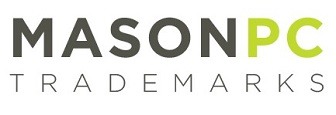Just because you thought it up, doesn’t mean that your business name qualifies for trademark protection under Canadian law.
A trademark registration is a government grant of the exclusive right to use a name throughout Canada. It’s a powerful tool that gives a company the legal right to stop others from using that name, or even something very similar, in a manner that is likely to cause customer confusion.
Understandably, every business should want a trademark registration for their name.
But unfortunately, not every name is capable of being trademarked. Only certain types of names will qualify, and in this blog, we explain the types of names that can’t be protected in Canada.
If you’re at the beginning stages of your business and you haven’t yet selected a name, you can use this post as a guide for names to gravitate towards and those you should avoid all together. If you already have a name that you love and haven’t taken the steps to trademark it, read further to find out if you even can.
Only Unique Names can be Trademarked.
The first hurdle for any name is that it must be unique.
If your name is too close to someone else’s in your industry (or a related one), and they were using their name first, you may not be able to trademark yours. In fact, you should think about changing your name all together, as you could be liable for trademark infringement.
The law says that the first person or company to use a name in Canada is the one who is entitled to trademark it. The first user of a name can oppose a trademark application for the same name or any name that is confusingly similar, even if they’ve never filed their own trademark application.
So ensuring you are the first to use your name in your industry is a must when it comes to trademarking it in Canada.
If you’re uncertain if your name is unique enough for trademarking, book a free consult with one of our trademark lawyers to learn more.

Only Distinctive Names can be Trademarked.
A distinctive name is one that actually points to (or is capable of pointing to) just one person or company.
There are certain types of names that just aren’t capable of accomplishing this, and they’re the names you really should avoid for your business.
Names that aren’t capable of distinguishing a single source are almost always refused trademark registration. The Canadian IP Office takes the position that non-distinctive words and terms should be available to everyone in a particular industry, and so they’re reluctant to grant only one company a trademark registration for it.
The most common types of non-distinctive names are:
- Names that describe the products or services you sell
While you may be free to use a name that tells the public exactly what you sell, you won’t be able to trademark it and stop your competitors from referring to their products or services using the same words. Examples of unprotectable descriptive names are things like Acne Fix, Green Lawn Care, or Pizza Shop.
These names are unimaginative, and generally, can’t be trademarked.
- Names that describe a feature or characteristic of products or services
Equally unimaginative are names that plainly tell the public the features or characteristics about your products and services. These kinds of names typically look like this:
adjective + noun/verb
Examples of feature-describing names are Speedy Courier or Juicy Pies. Anyone providing courier services should be able to describe themselves as “speedy”, and who wouldn’t want to call their pies juicy?
And, unfortunately, you can’t make a feature-describing name suddenly distinctive by giving it a unique spelling. Speedi Courier and Juicie Pies are still non-distinct names.
Names that describe a feature or characteristic of your products or services will almost always be refused trademark registration in Canada.
- Names that describe the quality of products or services
We all want to shout from the rooftops about how great our products and services are, but it’s a bad idea to do this with your name.
Stay away from words like “best”, “ultra’, “super” and “perfect”, as these are adjectives that should remain open to everyone to use to describe their own products or services.
Instead, think about how you can articulate a particular quality in a clever and unexpected way. A great example of this is Uber. In the English language, “uber” is most often used to denote something outstanding or supreme, but it also makes a clever and memorable brand name.
- Names that describe where products or services originate
Certain industries just seem to gravitate towards geographical names (I’m looking directly at you craft brewers). In every instance, it’s challenging to trademark these names and to stop competitors from opening up shop right across the street with virtually the identical name.
Geographical locations like countries, cites, streets and regions, are best left in your address, and not as the cornerstone of your branding.
- Names that are a common surname or complete name of a living or recently deceased person
These problem names are most often used by influencers and freelancers to promote their products and services. Personal brands can be extremely valuable, and like coined brand names, you want to be positioned with the ability to stop other people from copying.
Unfortunately, the law disagrees. Anyone should be free to promote themselves using their personal name. But if your name is already trademarked by someone else, you could be constrained.
In some cases, you can trademark a personal name by finding loopholes in the law. For example, if your brand name is a common surname, but it also has a dictionary definition (e.g. Brown, White, Young), you can trademark it in Canada. Or, if your full name is made up of two common forenames (e.g. Laura Lee, Em Ford, or James Charles), it could also be trademarked in Canada.
But for everyone else, your personal name is likely to be refused trademark registration in Canada, and this will make it a challenge to protect if it’s your brand.

How to Trademark a Non-Distinct Name
You may be thinking about some familiar brand names that fall squarely into one or more of the categories of non-distinctive names listed above, and you’re probably wondering how they’ve been trademarked. Names like Vitamin Water, Toys ‘R Us, and Kylie Jenner, all appear to not qualify for trademark protection, so why are they trademarked names?
The difference is time and money.
Just because you can’t trademark a non-distinct name right now, doesn’t mean it won’t be possible in the future. Marks that are considered to be inherently non-distinctive can acquire distinctiveness through years of use and advertising and plenty of ballsy enforcement.
You’ll have to widely promote and defend your non-distinct brand name until it becomes synonymous with you, and once you’ve reached this status, you can apply to the Canadian IP Office for your well-deserved trademark registration.
If you have a great that that you would like to trademark in Canada, get started for free today with our Markably® online, easy to use trademarking platform.


